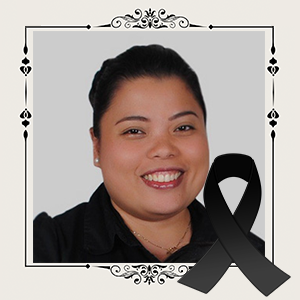
Electoral fraud can be defined as surreptitious efforts to manipulate election results. The opportunities to commit electoral fraud varies based on the type of electoral system (e.g., first-past-the-post voting vs. proportional representation). However, corrupt political actors often employ a variety of methods to influence an election result, including stuffing ballot boxes, manipulating voter rolls, and altering election results.
Corruption in elections leads to a lack of voter confidence in the electoral process and threatens the legitimacy of democratic institutions. Fraudulent elections also leads to co-optation of governance systems for personal gains, diverting necessary funds from communities and vulnerable populations to the personal accounts of corrupt political actors and their friends.
To combat electoral fraud, stakeholders must ensure, among other things, that ballot boxes are secure, voter rolls are regularly updated and authenticated, election results are verified, and electoral complaints are impartially and fairly adjudicated in a timely manner.

Monalee Teves has more than 20 years of significant work experience in the multi-sector settings of private corporations, media, government, and non-governmental organizations in more than 20 countries. She has extensive experience in governance and anti-corruption initiatives. She has served as the Acting Director for Transparency International-Philippines and as a National Program Advisor for the Transparency International Secretariat in Berlin. She has published more than 15 articles and is fluent in several Malayo-Polynesian languages. Monalee has earned a Bachelor of Arts in Mass Communications from the University of the Philippines and her Masters Degree in Development Practice from the University of Arizona. Monalee is also a graduate of the International Anti-Corruption Summer Academy (IACSA) in Vienna, Austria.
UNISHKA and its personnel have a proven track records of success in designing and implementing sustainable electoral strengthening projects in the elections sector. Our illustrative experience includes the following projects:
For the September 2019 general elections, UNISHKA’s Terry Hoverter acted as the United Nations Development Programme’s Legal Advisor to the Nauru Electoral Commission (NEC). As legal advisor, Mr. Hoverter provided legal analysis and guidance to the NEC concerning revisions to the electoral legal framework; reviewed the Electoral Act and other electoral-related legislation and make recommendations for reform; and adjudicated electoral complaints and disputes.
UNISHKA electoral experts have worked throughout Africa on strengthening legal frameworks and building the integrity of electoral processes. In Libya, for example, we assisted the Constitution Drafting Assembly (CDA) to draft the new constitution; worked with the High National Election Commission (HNEC), the Central Commission of Municipal Council Elections (CCMCE), and the Ministry of Interior on securing municipal and national elections; and supported local civil society organizations to develop advocacy strategies on key electoral issues. In Sudan, UNISHKA experts have represented the U.S. Government (USG) during the 2009-2010 electoral processes, providing guidance to Sudan’s National Election Commission and the international community.
UNISHKA and its experts have worked closely on elections monitoring and inspections in Iraq and Iran for more than 15 years. This includes Head Inspector of City Council Elections in Iran; Head Inspector for Parliamentary Elections in Iran; and Inspector of Election Campaigns in at least four different regions. Similarly, UNISHKA conducted a review into allegation of fraud and corruption associated with the 2010 Iraq Parliamentary elections.
In Afghanistan, UNISHKA worked with Afghan electoral stakeholders to strengthen their electoral system. This work included establishing independent organizations that focusing on electoral reform, including the revision of the electoral code. We also assisted the Independent Election Commission (IEC) with revising and implementing its strategic plan. UNISHKA personnel have also been seconded to the Electoral Complaints Commission (ECC) in Afghanistan during the 2009 and 2010 election dispute process to litigate electoral disputes before the Commissioners and advise the Commissioners on applying electoral laws. Finally, UNISHKA completed a comprehensive investigation into election fraud that validated complaints and identified lessons-learned.